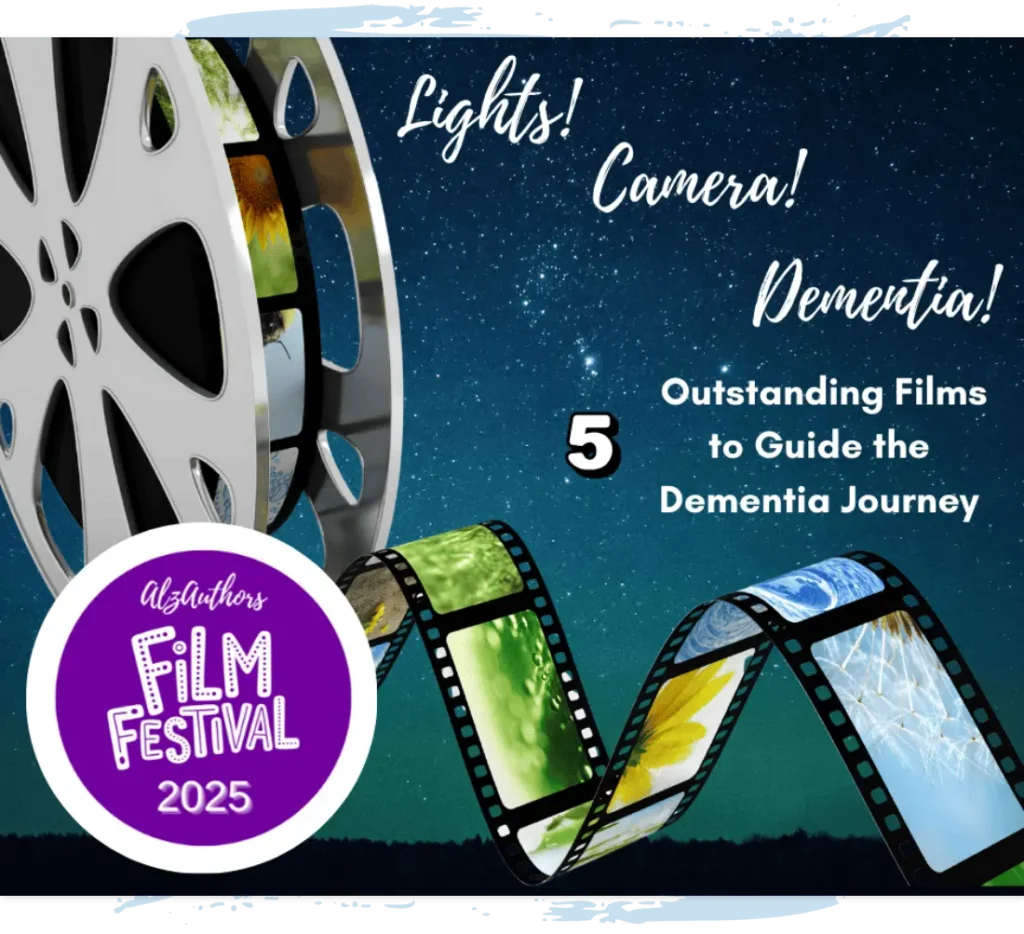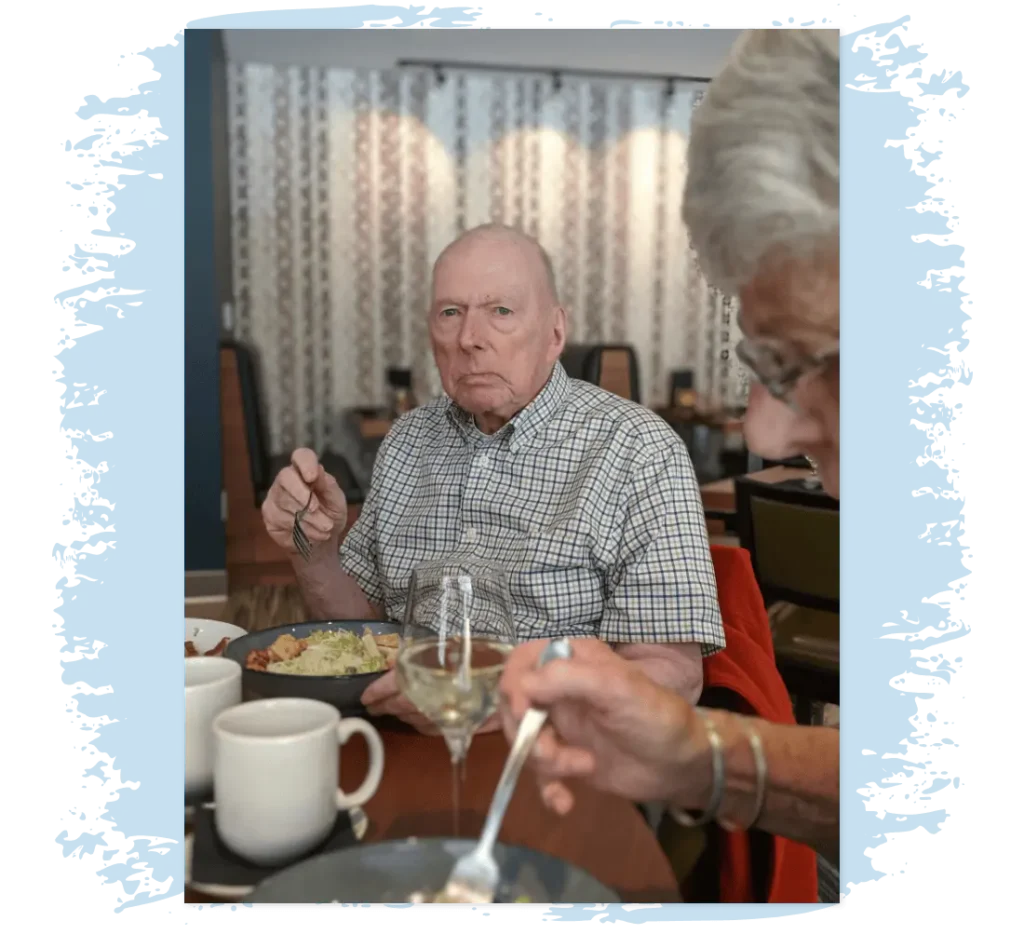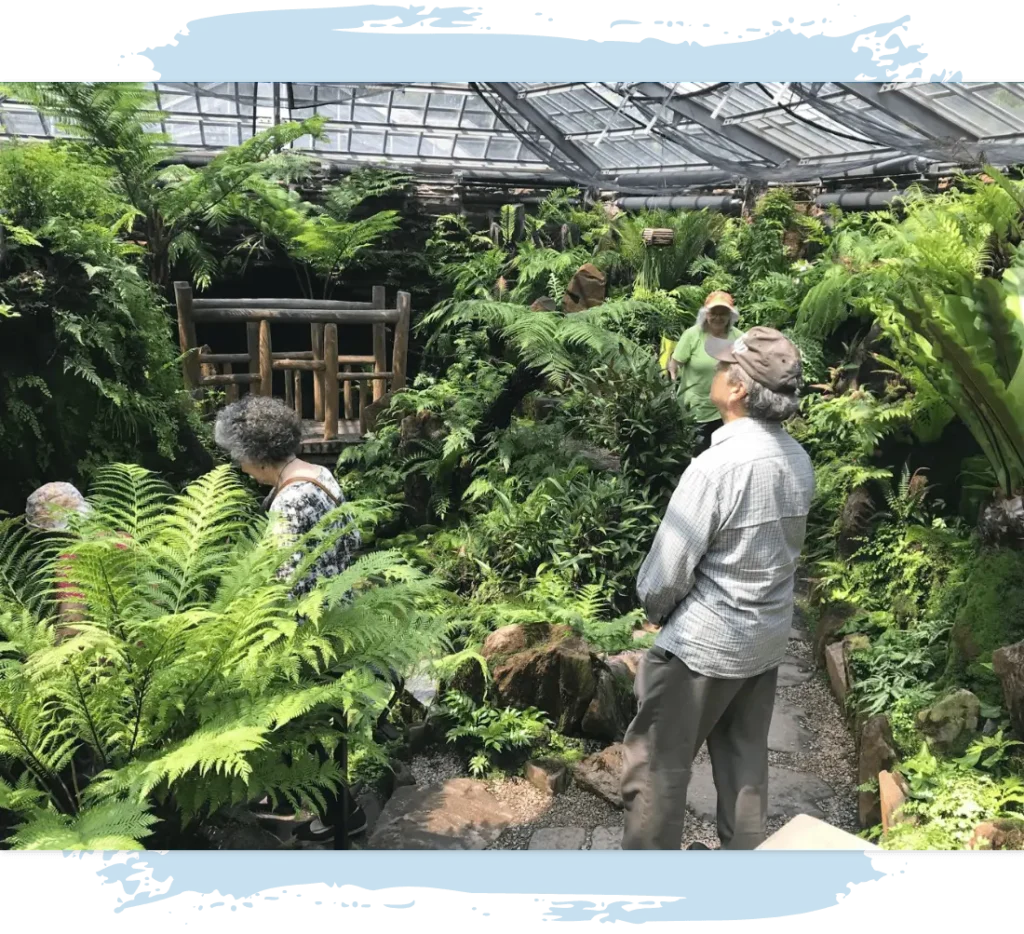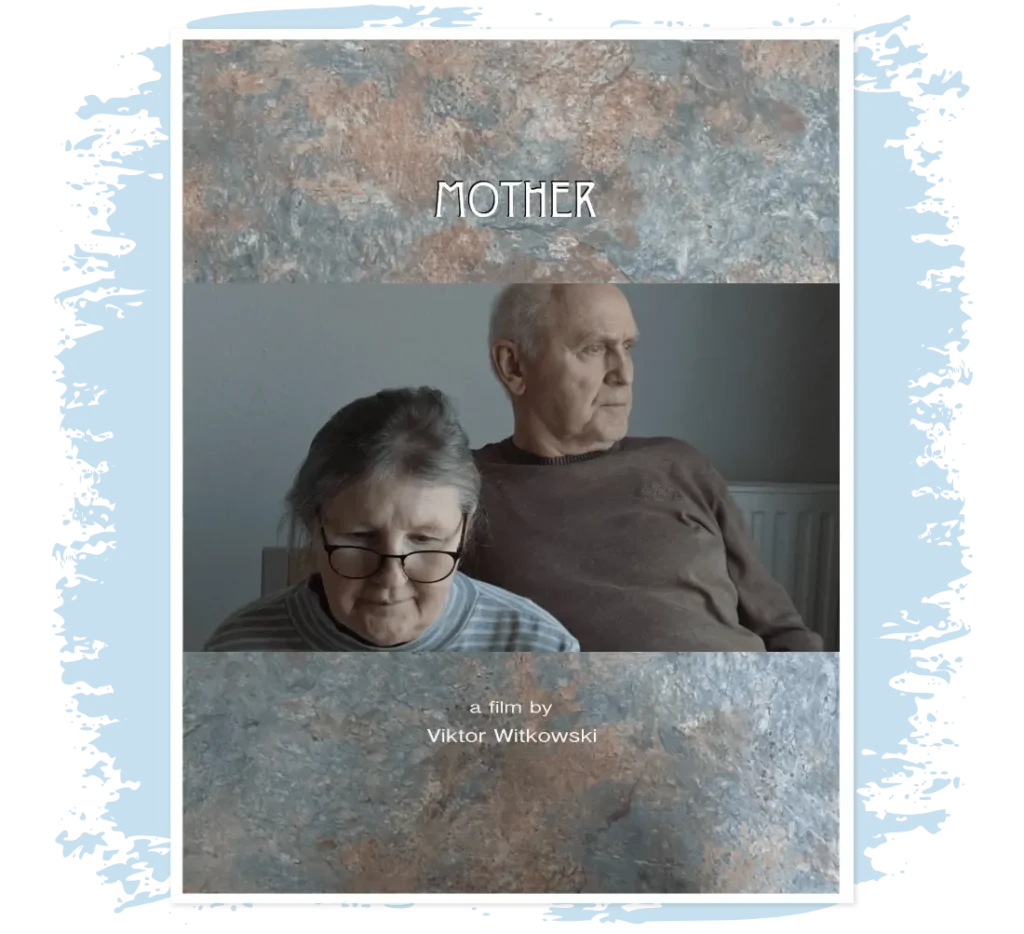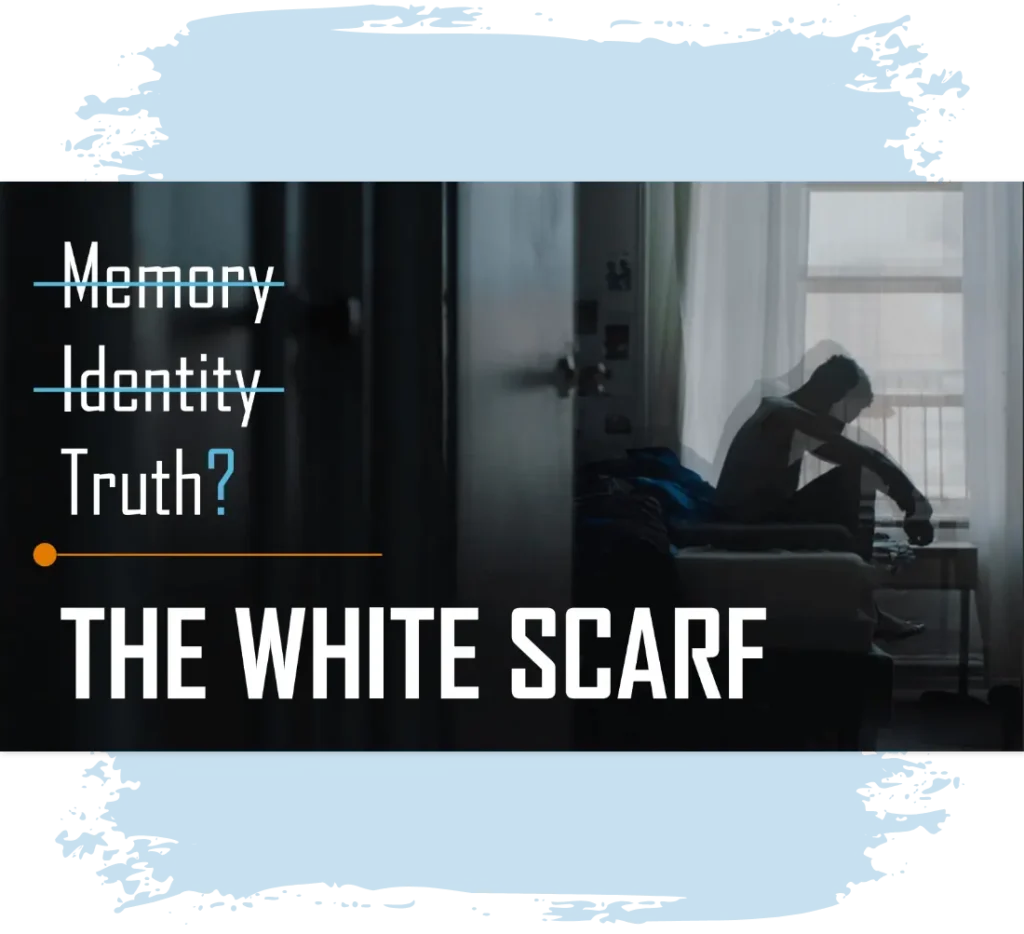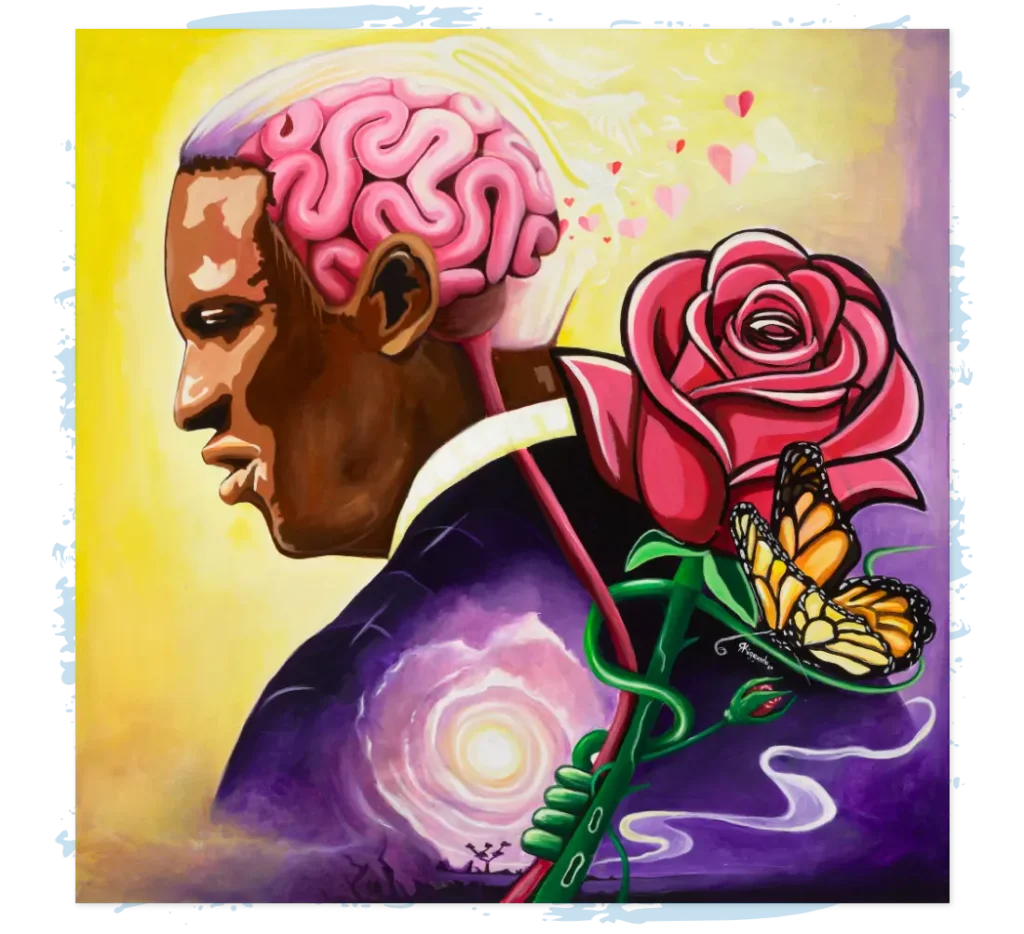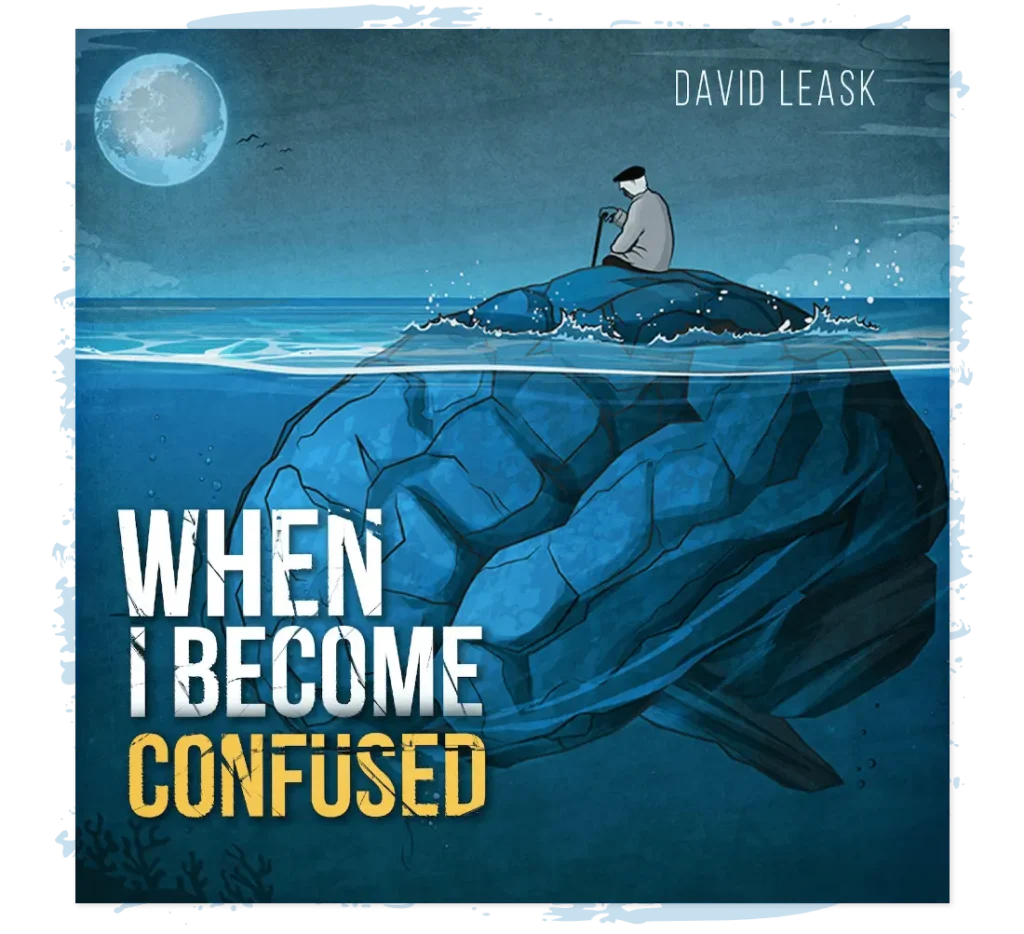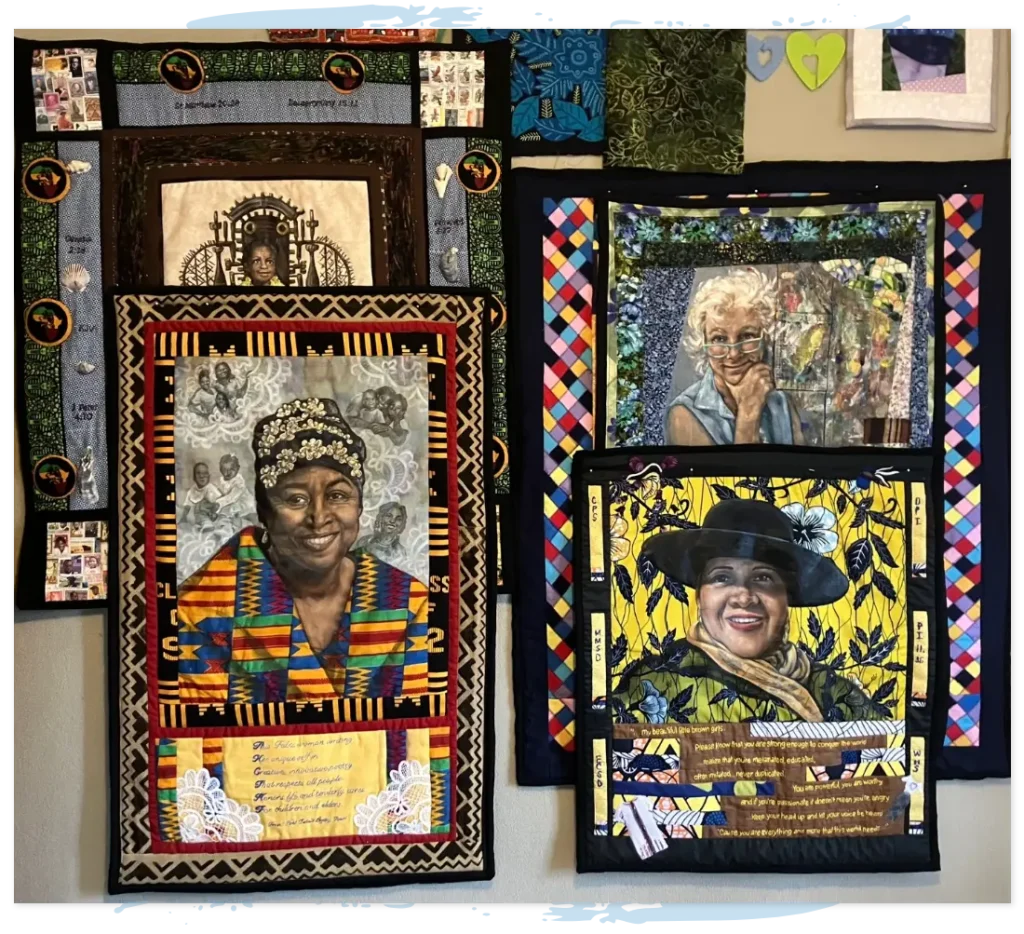What is Fractured Memories: Because Demented People Need Love, Too and how it came to be?
Fractured Memories: Because Demented People Need Love, Too, features more than 40 paintings alongside my firsthand experiences on my father’s diagnosis and journey with frontotemporal dementia (FTD), which originally appeared in a blog.
In creating the artwork, I used elephants as both a symbol for and talisman against dementia, because an elephant never forgets.
Emily Page
I was only in my thirties when he was diagnosed, so I didn’t have friends who had gone through a similar journey, and I didn’t know anyone who specifically had FTD. The books I had read didn’t quite capture my experience. So, I wanted to create something that could speak to a younger audience and highlight the ways that FTD progresses, as it’s a bit different than Alzheimer’s or vascular dementia. My hope is that viewing the works—with or without reading the book—fosters a dialogue about what dementia means for the caregiver, regardless of their age.
In creating the artwork, I used elephants as both a symbol for and talisman against dementia, because an elephant never forgets. I also incorporated sheet music, lyrics, and poetry, because my dad was a professional jazz musician and so much of his identity was wrapped up in music. It was one of the last ways he could still communicate with us—even when he couldn’t really speak, he could still sing with me.
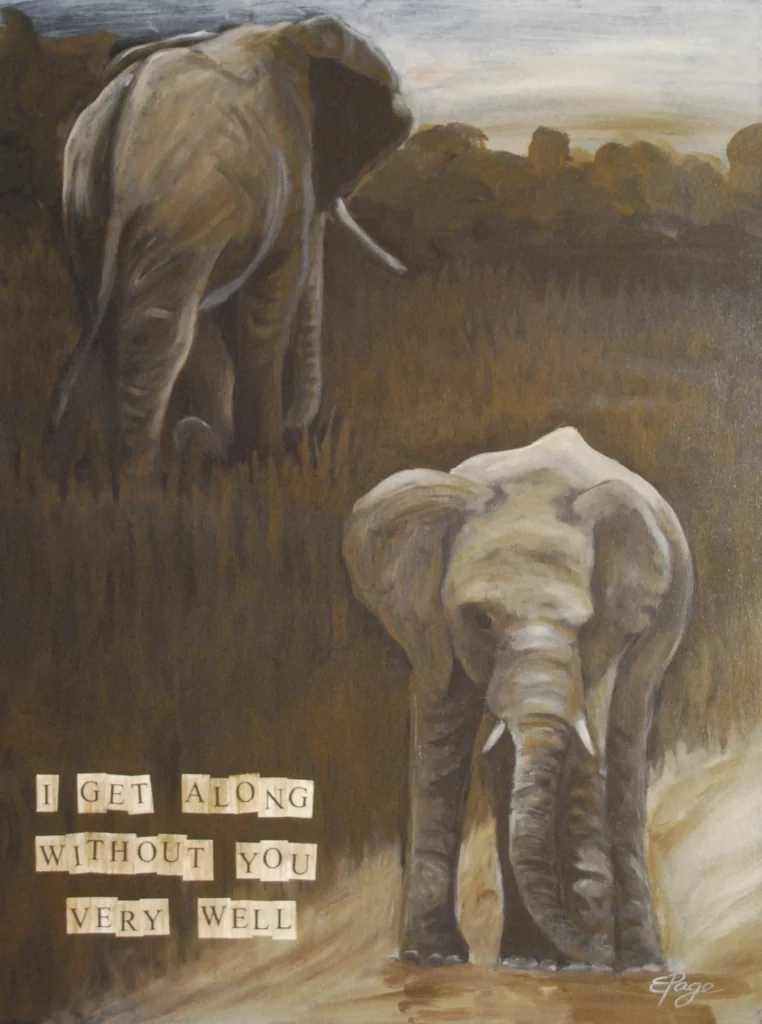
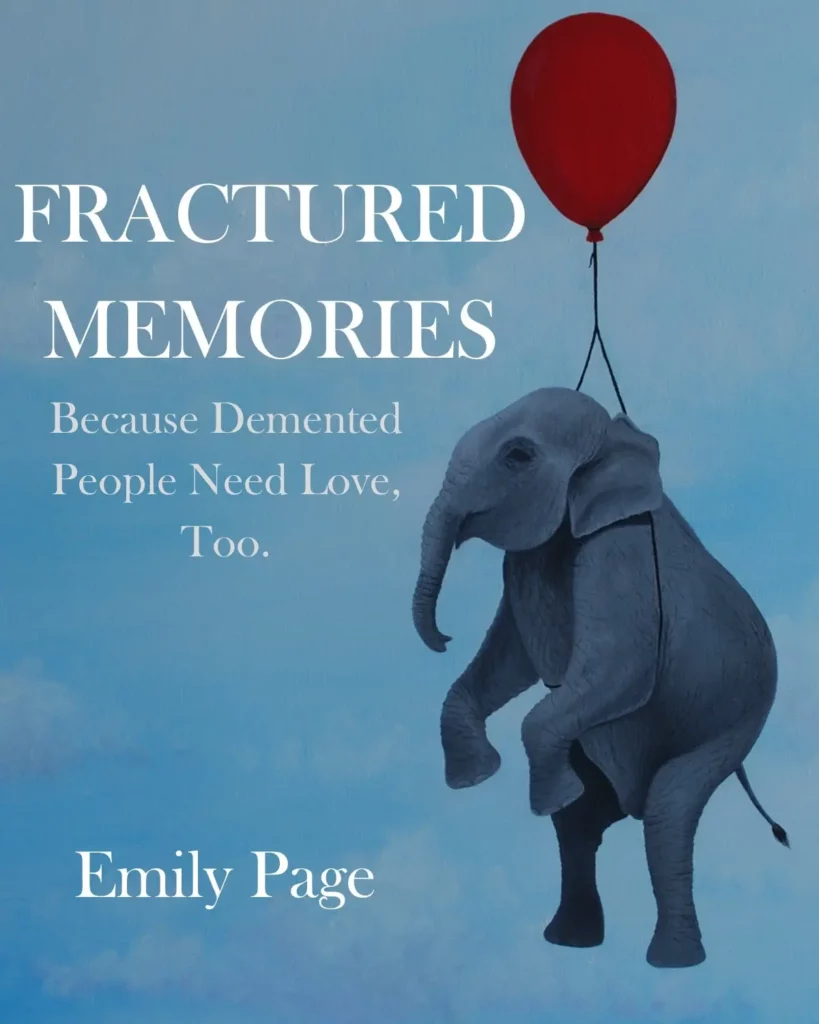
What inspired you to grapple with dementia?
As a professional artist, using art as therapy is something I’ve done my whole life, because sometimes there just aren’t words that can fully capture the feelings that come along with a journey like this.
My main goal in writing the book was to show the full spectrum of emotion that comes along with loving someone who has dementia. Yes, it was hard and painful, but there were also moments of absolute hilarity and simple beauty, and looking for those is what helped me survive the pain.
Another goal was to be completely honest, even if that meant showing my failings as much as the successes we had as a family. I hope my readers will take some comfort in knowing that they’re doing the best they can, and even if they don’t always get it right, that’s okay. They’re not alone in this, despite how isolating it can sometimes feel.
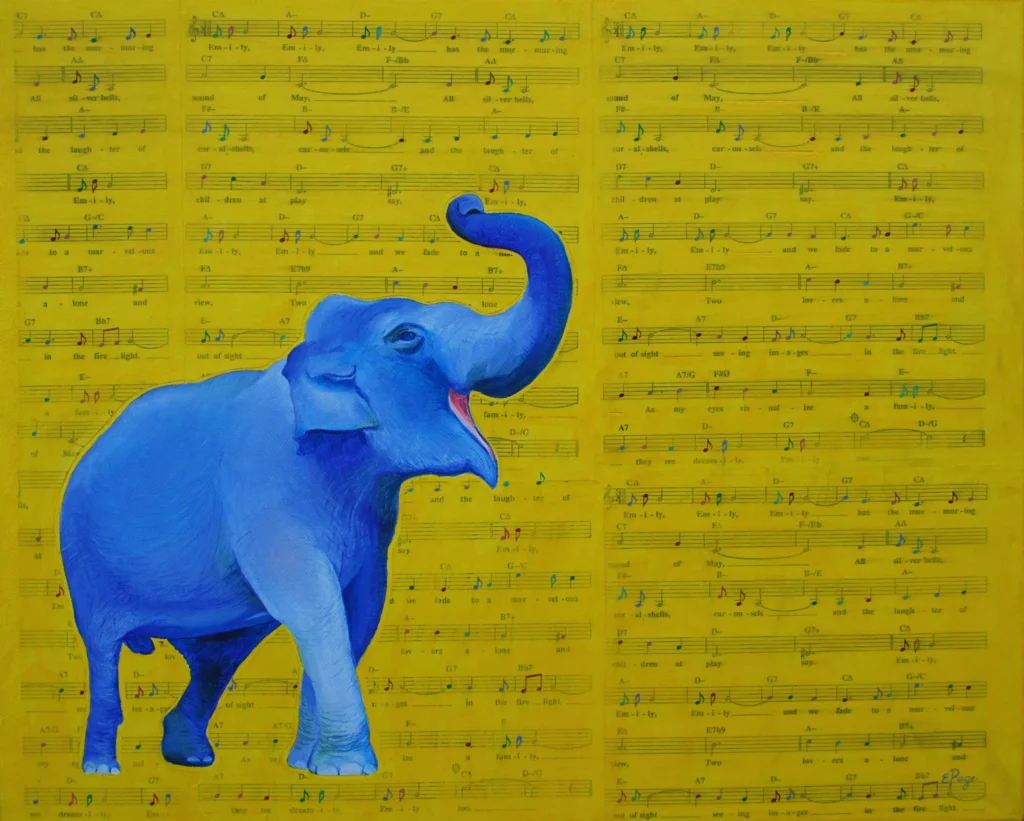
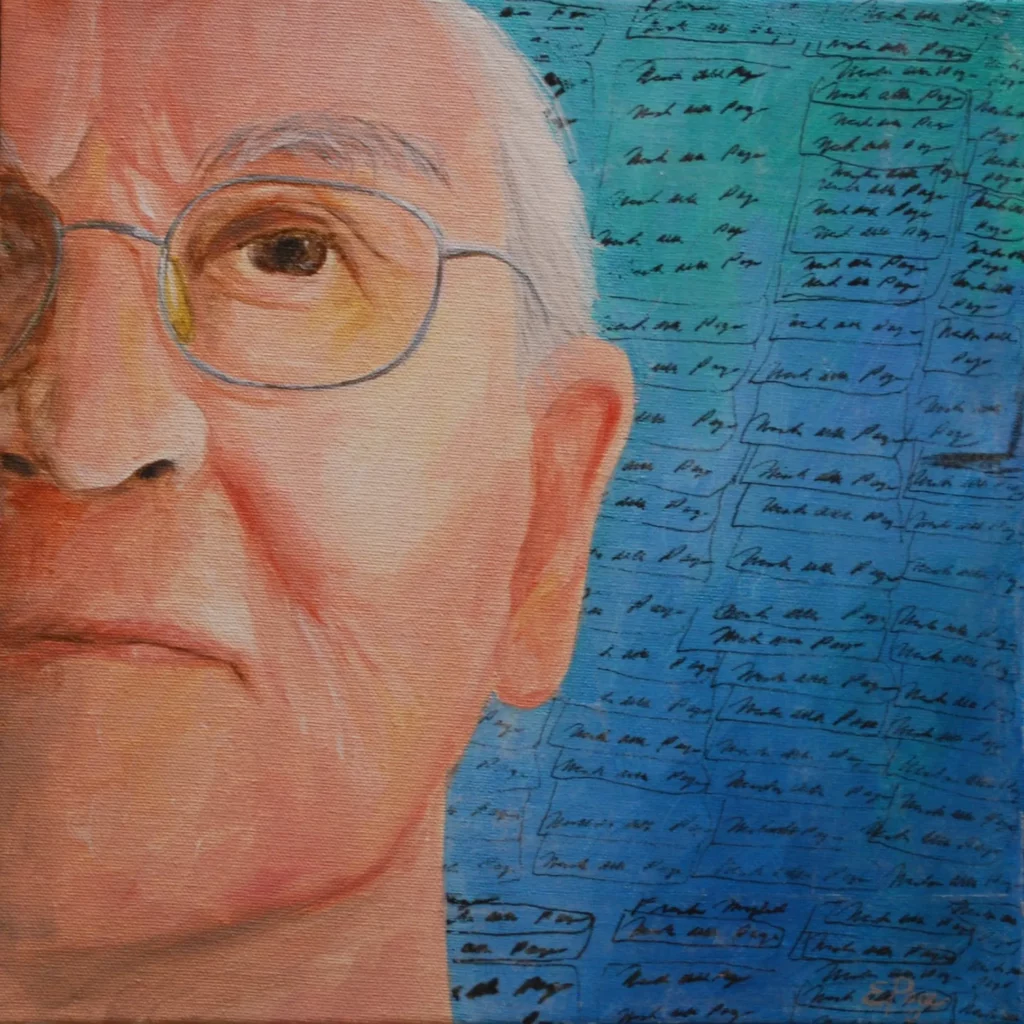
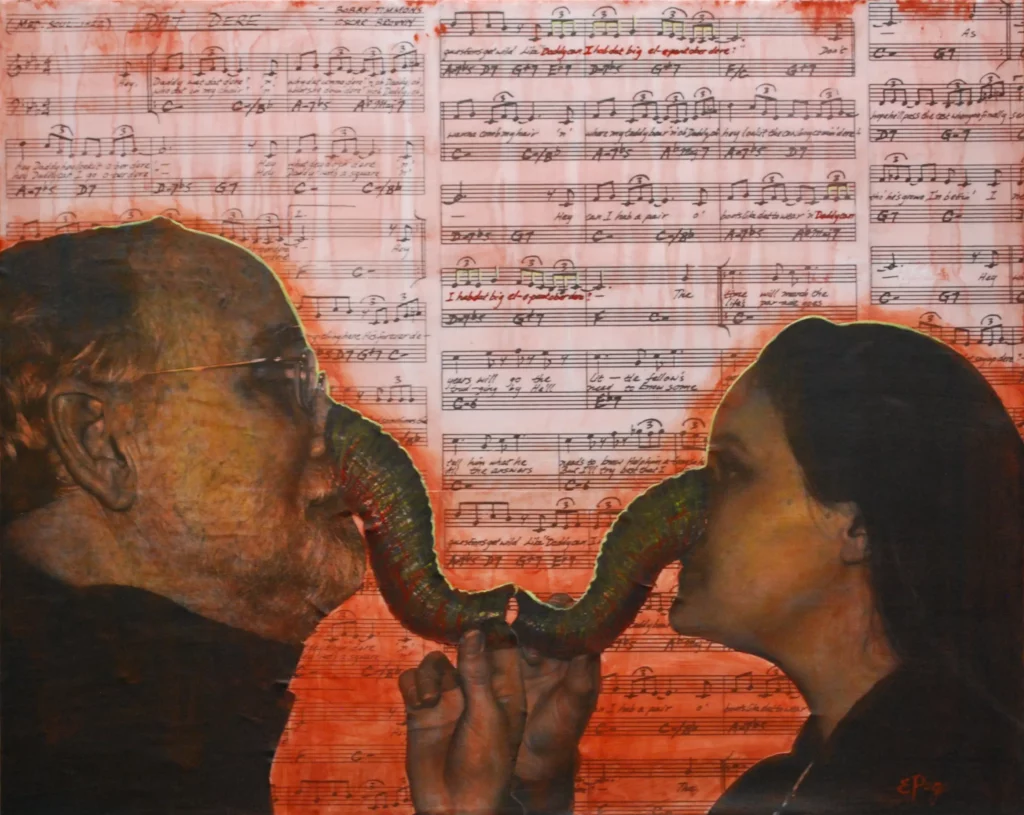

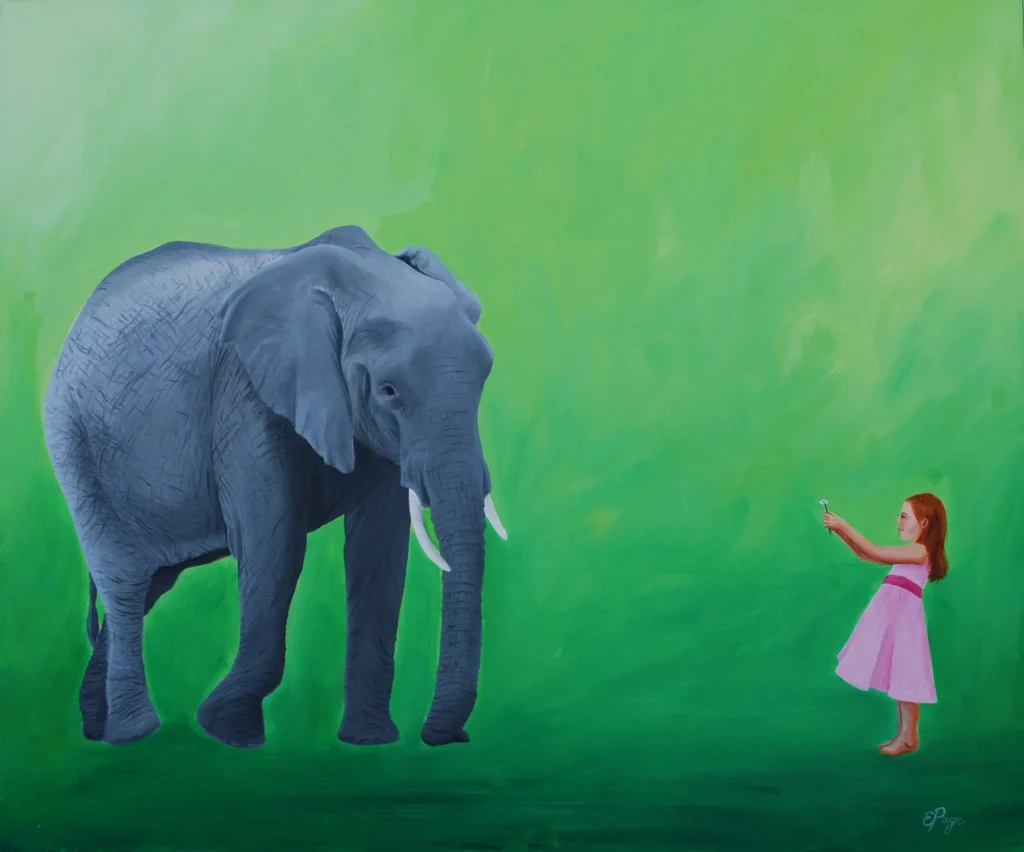

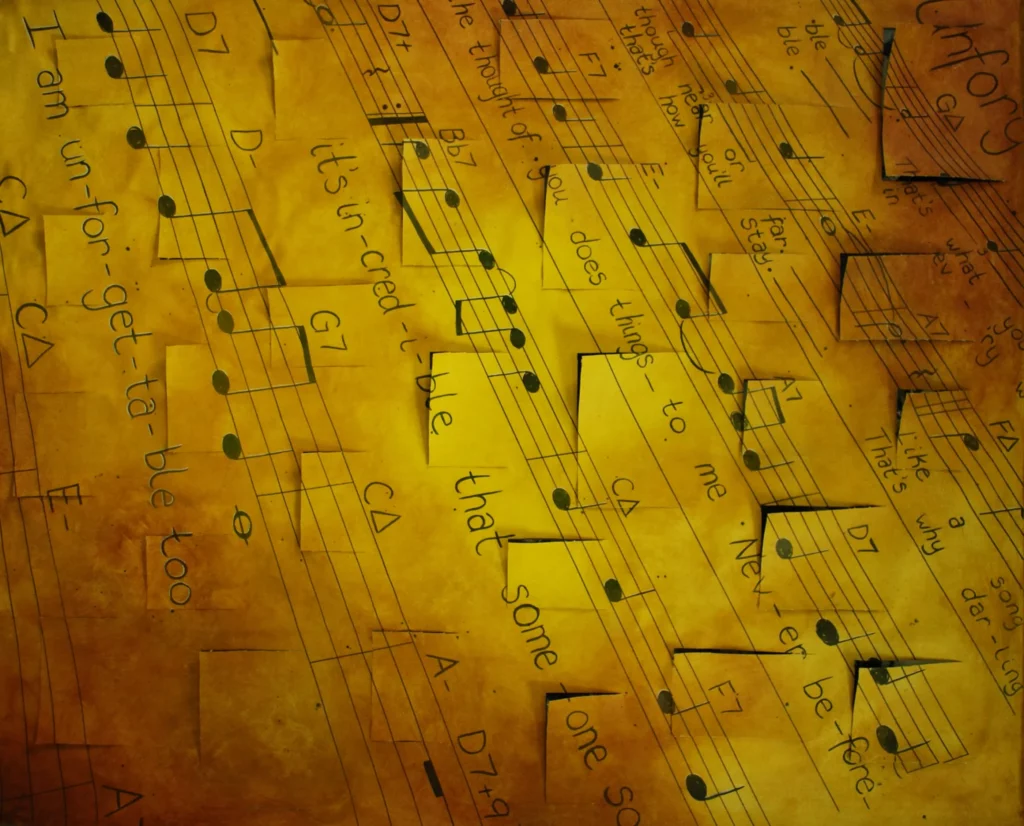
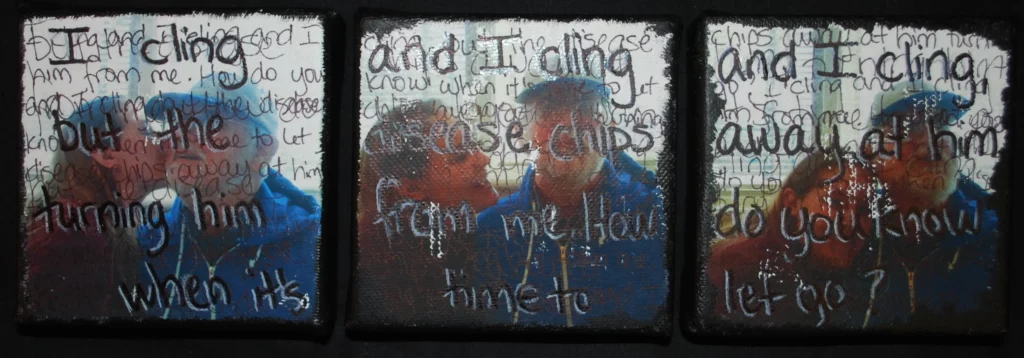
How has working on dementia-related art changed you?
It reinforced the healing nature of art therapy. Much of this work was different from the more tight, controlled painting style I usually work in. I needed to get my emotions out on canvas quickly as they were flooding over me, so I often used acrylics (instead of the oils I generally gravitate to) due to their fast drying process. It allowed me to be more expressive and playful—and to let go. The paintings required more physicality to create, which again, was useful in getting the ugly emotions out of my body. And when I really needed to stop the negative cyclical thinking around what was happening to my family, concentrating on a piece of art became essential.
How has Fractured Memories: Because Demented People Need Love, Too been received?
My book has become a resource for people who are starting to deal with their parents’ dementia. They’ve read it and then passed it on to their family members and other loved ones. And people have reached out after reading the book and viewing the art to ask more questions and share their own experiences, which I absolutely love. It makes us all feel less alone, and I know my dad would be thrilled to know that something good has come out of all of this.
This work is dedicated to: The work is all dedicated to my father, who died in 2016 from frontotemporal dementia. He was an exceptional father and I’m so grateful to have had him for as long as I did, even with the dementia.
Find more from Emily Page on Instagram, Facebook, Redbubble, and her website. Fractured Memories is on sale via Amazon.


